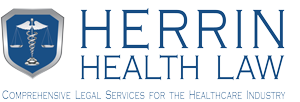The concept of “low-hanging fruit†is a motivational factor in Recovery Audit Contractor (RAC) audits. The following diagnoses are some of the most common areas of recoupment activity:
- Renal and urinary tract disorders
- Surgical cardiovascular procedures
- Acute inpatient admissions for neurological disorders
- Outpatient services billed as inpatient encounters.
The application of overpayment recoupment provisions under the Patient Protection and Affordable Care Act as well as Medicare Conditions of Participation provisions were illustrated with specific examples seen in practices. Some reasons for queries include ineffective practices of resulting from having the practice’s utilization review department being absorbed into the case management function, creation of workarounds for physician satisfaction, submission of noncompliant (leading) queries, assumptive actions by coders, and misconceptions of providers.
It is important for CDI professionals to focus on revenue integrity, understanding that the outcome of such an approach may not be an increase in billing, but rather keeping more of what has been billed. Correct coding may mean lower initial reimbursement but more certainty in the revenue picture. To ensure success, revenue integrity initiatives can be initiated, such as creating teams of internal experts, which may include health information management (HIM), case management, nursing, medical staff, billing, and corporate compliance. The continuous training of staff is important and can include teaching physicians the basics of coding and teaching coders about clinical documentation processes. One way to provide this education is by having CDI professionals involved in reviewing health records for content on the floor during episodes of care. Coding is a HIM function, not a business office function. Some postulates that can be beneficial to follow include “just because you have a code doesn’t mean it’s covered,†“just because you’ve been paid once doesn’t mean you’ll get paid again,†and “not knowing the rules can land you in jail.â€
Proceedings of AHIMA’s 2017 Summit on Clinical Documentation Improvement: Advancing the Documentation Journey
The excerpt above describes Barry Herrin’s presentation during the American Health Information Management Association’s annual clinical documentation improvement (CDI) summit July 31 to Aug. 1, 2017.
Barry S. Herrin, JD, FAHIMA, FACHE, is the founder of Herrin Health Law, P.C., in Atlanta. Herrin offers more than 25 years of experience practicing law in the areas of healthcare and hospital law and policy, privacy law and health information management, among other healthcare-specific practice areas. He is a Fellow of the American College of Healthcare Executives and a Fellow of the American Health Information Management Association. He also holds a Certificate in Cyber Security from the Georgia Institute of Technology.

